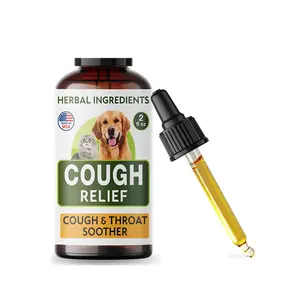Understanding Dog Small Cough
When your canine companion experiences a small cough, it can be concerning for pet owners. A small cough in dogs can be caused by various factors, ranging from minor irritations to more serious health conditions. Understanding these nuances is pivotal for effective monitoring and treatment. This guide will delve into the different aspects of small coughs in dogs, helping you to identify potential causes and decide when veterinary intervention is necessary.
Types of Dog Small Cough
There are various types of coughs that can affect small dogs. Identifying the type is the first step to understanding the underlying issue.
- Hacking Cough: Common in small breeds, often associated with kennel cough or environmental irritants.
- Wet Cough: Characterized by a noticeable phlegm presence, which can indicate respiratory infections or allergies.
- Dry Cough: A persistent, harsh cough which may signal throat irritation or even heart conditions.
- Goose Honk Cough: Unique to breeds such as pugs and bulldogs, frequently linked to tracheal collapse.
Function and Feature of Dog Coughs
Understanding the function and features of coughs in dogs provides insights into what your pet may be experiencing.
- Protective Mechanism: Coughs are a natural reflex to remove irritants from the throat or lungs.
- Symptomatic Indicator: A cough often signals underlying health issues, such as respiratory infections or allergies.
- Different Sounds: The nature of the cough (hacking, wet, dry) can provide specific clues about the issue at hand.
- Duration Matters: A temporary cough may not be concerning, but persistent coughs warrant veterinary consultation.
How to Choose Products for Dog Small Cough
Choosing the right products to soothe your dog’s small cough can greatly alleviate their discomfort and support recovery.
- Consultation with Veterinarian: Always start with professional advice tailored to your dog’s specific condition.
- Natural Remedies: Consider cough syrups or lozenges designed for dogs that offer soothing ingredients like honey or marshmallow root.
- Humidifiers: Investing in a humidifier can help ease dry air, benefiting dogs with coughs exacerbated by environmental factors.
- Dog-Friendly Collars: Ensure collars do not irritate the throat if your dog has developed a cough, especially if they are prone to tracheal irritation.
Safety and Quality for Dog Small Cough Products
When dealing with a dog’s cough, it is crucial to prioritize safety and quality in all products used for treatment or relief.
- FDA Approval: Look for products that have been approved by the FDA for pets, ensuring a standard of safety.
- Ingredient Transparency: Always check the ingredient list for any harmful components or allergens that could worsen your dog's condition.
- Reputable Brands: Purchase from reputable manufacturers known for high-quality pet care products to ensure reliability.
- Veterinarian Recommendation: Choose products that your veterinarian recommends, as they will be familiar with your dog’s specific health needs.















































